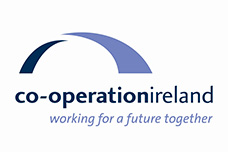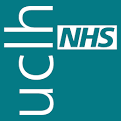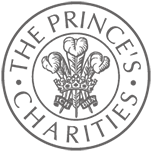‘The value of diplomacy’ – Francis Campbell, Vice Chancellor at St Mary’s University, Twickenham
The Lord Lieutenant of Greater Belfast, Your Excellencies and members of the Diplomatic and Consular Corps accredited to the Court of St. James’s, to the members of the Diplomatic and Consular Corps accredited to Ireland, my Lord Bishop, the Lord Mayor of Belfast, Baroness O’Loan, Your Grace the Duke and Duchess of Abercorn, members of the Local Assembly, to the members of the Honorary Consular community present, distinguished ladies and gentlemen, it is a delight to join you this October evening in Belfast for the first official dinner of the Consular Corp/Association of Northern Ireland. Tonight I have been asked to speak of the diplomatic life its challenges and joys, and its overall purpose in the modern age.
At this stage of the evening, forgive me if I’ll spare you the challenges! Whether they be what one has to eat for one’s country from time to time rather than risk giving eternal offence to your hosts, to sharing a plane with two live hens for three hours as they flew around the cabin or even the calming effect of a pilot announcing before take off – to his and the crew’s great pride – that we were privileged to be on the second oldest 747 still flying and which had just received a perfect safety record for 3 months in a row so could we all give the maintenance crew a round of a applause as they had worked so hard to make the plane airworthy again!
Ladies and Gentlemen, I am delighted to be with you because of the professional connection to the work that you do and which we celebrate tonight, but also because of the cause we are supporting, Co-operation Ireland, an organisation which has done so much for Peace and Reconciliation on the island of Ireland since Dr Brendan O’Regan formed the charity in 1979 and today led by Peter. Shortly I would like to say a few words about the contemporary purpose of diplomacy, but before doing so let me say something about someone in our midst this evening who illustrates more than any words of mine, what diplomacy and friendship is about.
I am delighted this evening to be able to take the opportunity to pay public tribute to someone who has done so much for this island and Co-operation Ireland, often behind the scenes, but playing a crucial role at many critical times (past and present), and that is the Chairman, Dr Christopher Moran.
It is apt that this evening that we are celebrating diplomacy because few have done more to further the cause of diplomacy between Ireland and the UK than Christopher. Whether it is quiet advice and counsel to all parties in government and opposition, or monarchs or presidents or even providing a space for others to meet and exchange ideas, Christopher you have put yourself at the service of others and for this, and especially in this city, we cannot allow such a contribution to go unnoticed. It is an example to all how to do diplomacy and how to do it well. We will leave others to write the history, but individuals play critical roles and at key times in achieving peace. Christopher, you are among those few, and even this past week you have been key to the visit of the Lord Mayor of London to Dublin and Belfast and the exchanges of the respective Maces of each city.
The example of Christopher and co-operation Ireland shows the broad diplomatic family what diplomacy can achieve. It is timely to have this dinner tonight as many today question what diplomacy is and why it continues.
Some ask if it is necessary for this age of instant communication to have a traditional global diplomatic corps? They ask if they are worth the financial expense if they are simply keeping the lights on or flying the flag? Some even claim that there is no distinct diplomatic cadre of staff anymore and the diplomatic service is interchangeable with the domestic civil service such as what has occurred in the UK. Many critics of diplomacy would argue that journalists or NGOs could provide the same information and analysis faster and better than the rather more cumbersome diplomatic machine.
However, while information might flow more easily across the world, it does not necessarily follow that the meaning will. And it is not just meaning, there is also the question of truth. Few situations are what they initially seem. While people can point to social media being a force for good for example in the Arab Spring, a diplomat would urge caution about getting too caught up in the mood of the moment. I have also known examples of social media being used by a mob, fired up by false rumours which have resulted in death or injury, especially of minority groups.
In my view, and despite a changing world, the nature of what might be called old-fashioned diplomacy remains alive and very much needed. Why?
Because historians are likely to view 2016 and 2017 as years of shifting political paradigms. For the moment, all we can say for certain is that these shifts in power and relations are creating high degrees of uncertainty politically, economically, socially and indeed diplomatically. That is certainly the case on this island and between these two islands, and also within the broader EU.
But what is changing and why is it changing and where do we situate ourselves within those changes?
At this point in our history, we are in the midst of immense changes. But what will future generations say of our age and why we took the choices we did? Will they see us as being on the cusp of a shift from civic politics in the West back to identity politics? Will these seventy years of peace in the West be seen by future generations as the outlier in the history of contemporary European civilisation?
And so how can we describe that changing world that we see all around us? Is it that we are becoming more parochial, more insular and isolationist? Is it just a natural next stage; the inevitable fragmentation of the multilateralism that dominated the post-World War II period? Is our world becoming more or less religious? What is happening for example here in the UK – is it perhaps a sort of delayed post-imperial crisis of identity, one that produces introspection and isolationism, or is Brexit as some of it supporters advocate, an opening to the world?
Old power certainties are in flux. It is into that flux that many of us step asking what is happening and what is likely to happen. People will naturally look to diplomacy to find a view which will not simply be of the moment or swept along by populist sentiments, but rather provide an intellectual anchor where facts can be established and theories explored in context.
I’m sure that each of us has had many interesting exchanges in recent months about world events. Those historians among you might find a parallel in 1848; others may see the re-emergence of hard-powers intent on dismantling the post-world War II multi-lateral order and return to the century of balancing Great Powers with their spheres of influence. For social scientists or economists among you, this might be a period of de-globalization fuelled by the reaction to the financial crisis of 2007-08. Perhaps you might see a parallel to the 1929 Crash and the ensuing economic and political instability in the years following. Theologians and philosophers might see a deeper meaning to what is going on around us.
Whether we analyse our present as historians, diplomats, scientists, social scientists, philosophers or theologians, we will still have to come back to a reality of what is happening around us and why, and what role diplomacy has in giving meaning to our world. In the midst of all this change and despite the growing number of inventions which will affect our lives and professions, there will remain fundamental questions for each human being. The context in which those questions will be asked might change (it usually does), but not the question of the purpose of the human existence and its hopes and wants.
We are likely to construct frameworks for what is happening in our world. Perhaps connecting events in our increasingly anarchic world into some meta-narrative focused on collapsing sovereignties, mutations of identity, inflated ambitions of religious or political groups who we perceive as having a homogeneity that they really don’t. There simply may be no narrative which can give us a simple framework, and we should be suspicious of at such attempts. It might simply be chaos, and so we have to be cautious about explanations which attempt to fill in the blanks and demand responses to flawed reasoning. This is where diplomacy has a unique role to play by reminding us of the historical context and expanding the horizon and ensuring relations are nurtured and maintained.
So what is the response to these crises? Many look to the international community for a solution. They endow it with resources and powers which it often does not possess. They look to diplomats and diplomacy for the answers to many of these problems. Again the frailty of the system is not always factored in. We have to be alive to the risk of falling into lazy assumptions and flawed reasoning which may initially appear appealing, especially if based on a limited sample or a narrow context.
In this ever faster world, where communication flows are part of the quick and the instant, but meaning cannot move that fast, diplomacy will have to retain a filter through which developments are sifted to ensure accuracy and resilience.
There are risks for diplomats in this more quick and instant world. Perhaps some might try to match the speed of the media and with only a superficial grasp of a region or a theme, offer quick advice. Perhaps they might ignore essential detail in the desire to distill complexity. They might not get the context right and may ignore the particular history of the region. Worse they may come with a fixed view of what might work at home or might have worked elsewhere and try to shoe horn in the policy remedies in an entirely inappropriate context. We can all think of policies, which were inappropriately applied or implemented, and in an untimely fashion.
But the reality is often quite different and always has been – and this evening is a good example. A good diplomat will access others occupying the diplomatic space, e.g. NGOs, academia, business, when working on a particular area or theme. That outreach allows the diplomat to build friendships and contacts, to source information, to get under the skin of a society and its people and to send home informed and detailed thinking. So diplomacy is really only possible when forums such as the one we are part of tonight, give the space for meaningful exchange of a wide variety of views. And it is not a one-way street, as the local community comes into contact with the diplomatic, then the former is also changed by being opened up to new perspectives, cultures and civilizations.
The challenges for diplomacy in what must at times seem like a world which is slowly slipping into anarchy, is how to integrate and source deeper knowledge into the formulation of policy so that it is accurate, informed and appropriate. This will ensure that the approach is sufficiently stress tested and that it is getting the right sequential balance between accuracy and advocacy. Policy, to be effective, should advocate a course of action, but if the advocacy is based on wrong or incomplete analysis, then it is not authoritative or accurate. This will require the avoidance of partiality. If the diplomat is too partial or attuned to a particular global philosophical or cultural framework, then they will fail to do the work of a diplomat and simply interpret thoughts and actions through a faulty prism.
The risk in diplomacy is to imagine that the more familiar (which usually means one’s own system) is the norm and all else which we encounter which is therefore different from that is somehow abnormal. When faced with the ‘abnormal’, our instant response can be to impose a solution which might be familiar to us. We can in a way expect societies to change to our normality or to in a way ‘fast-forward’ their development. Such an approach whether about the adoption of democracy or a hasty application of values can carry huge risk and result in push-back.
A diplomat, one would hope, could see the flaws in their own system and therefore encounter other cultures and systems with a degree of humility and openness. That openness could leave open the way for fruitful dialogue, unconventional thinking and approaches, and friendship.
It would be misleading to assume that a world that is ever more connected is in less need of diplomacy. Globalisation and the technological revolution may have ushered in new methods of diplomacy and given faster access to raw feed, but it has not yet given faster access to meaning, and for as long as that is the case, there is, even more, need for diplomacy and diplomats to set the wider contemporary context and grammar. Nothing can replicate what we are doing tonight, exchanging views and perspectives with those from different cultures and countries and doing so in the spirit of diplomatic friendship and welcome. As someone who benefited so much from the friendship, welcome, and at times protection of all the countries I had the pleasure of serving in abroad, I am really delighted to see you tonight, in this part of the country I call home, extend such a warm welcome to the diplomats here present, and to reciprocate the kindness and warmth shown to so many Irish and UK diplomats who serve their countries overseas.
Thank you.





